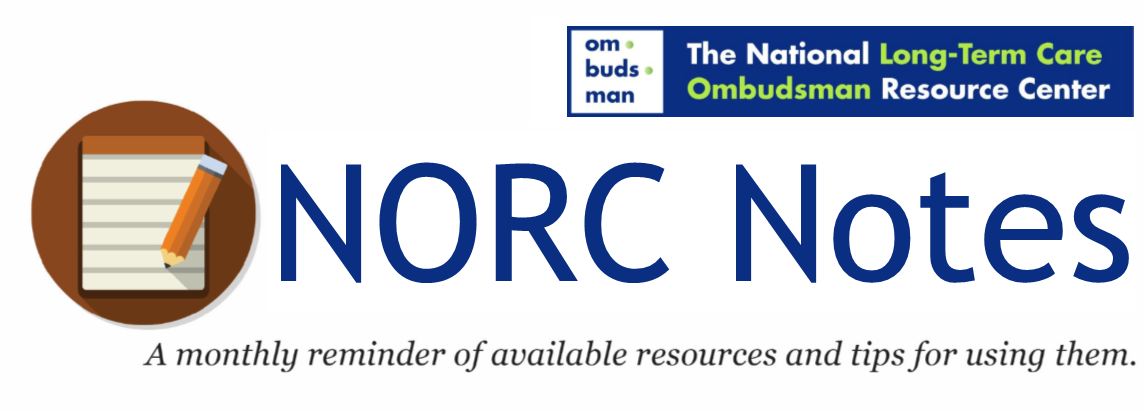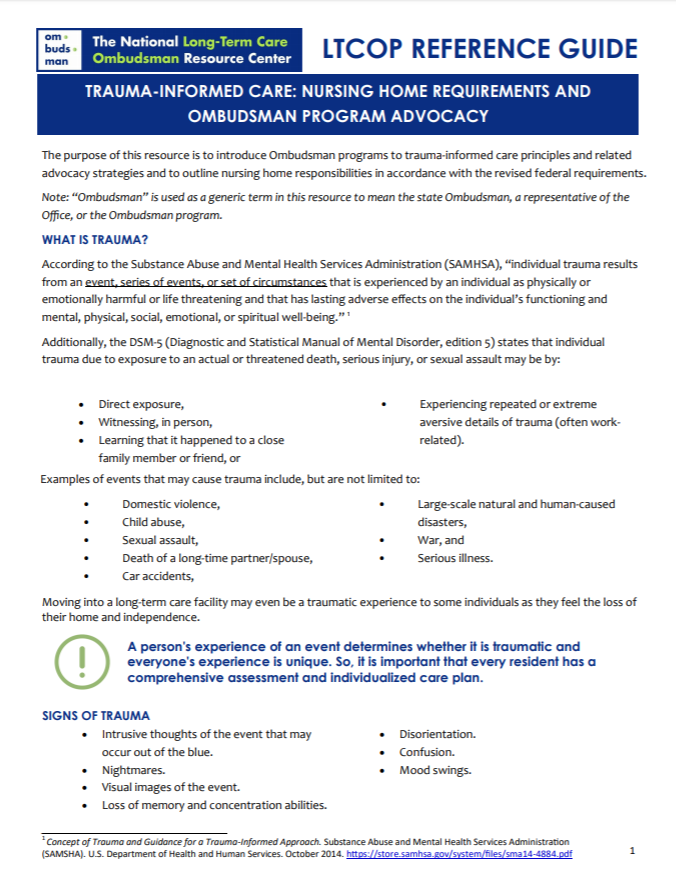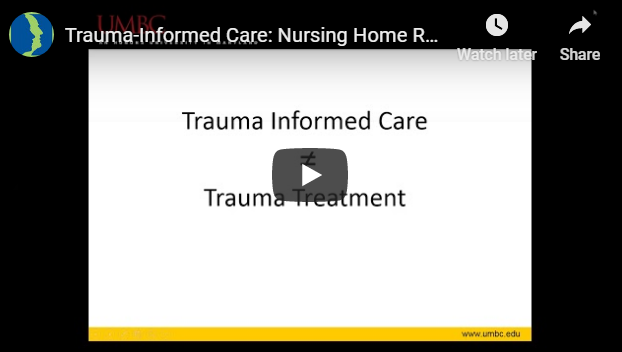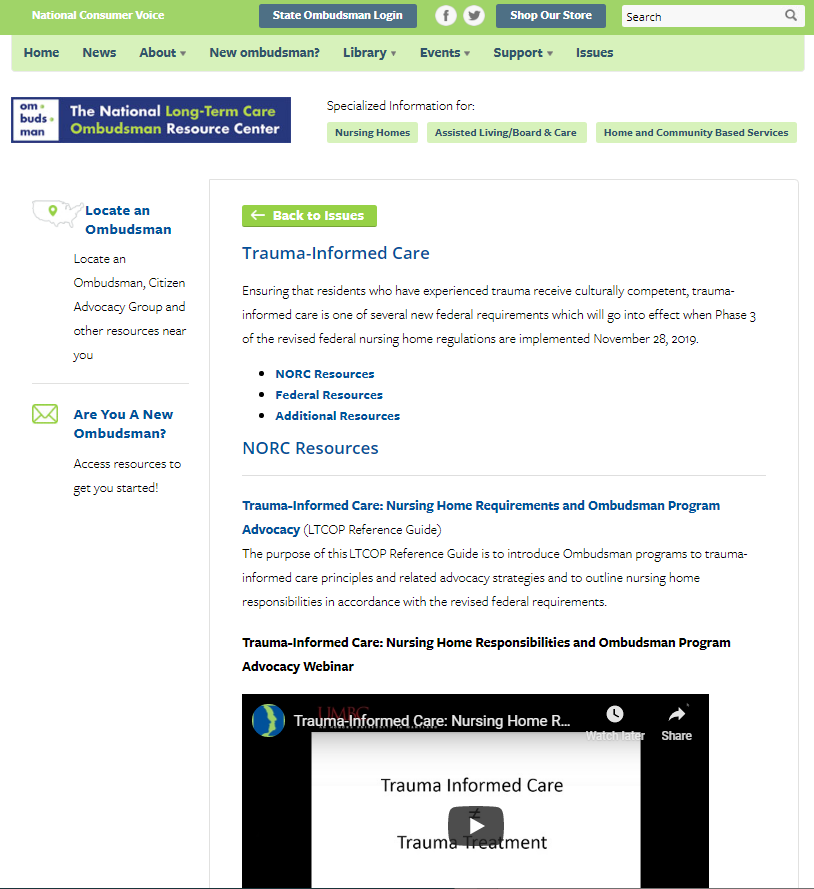| View this message on our website. | |
 |
|
| SHARE: |
|
Trauma-Informed Care Resources Trauma-informed care is an organizational structure and treatment framework that involves understanding, recognizing, and responding to the effects of all types of trauma. Trauma informed care also emphasizes physical, psychological, and emotional safety for both consumers and providers, and helps survivors rebuild a sense of control and empowerment. Ensuring that residents who have experienced trauma receive culturally competent, trauma-informed care is one of several new federal requirements which will go into effect when Phase 3 of the revised federal nursing home regulations are implemented November 28, 2019. 70% of adults have experienced some kind of traumatic event. Therefore, it is likely that a large majority of residents may be affected, and a best practice would be to approach all residents assuming they have experienced something in their life that may trigger a response. Signs of trauma include, intrusive thoughts of an event that may occur out of the blue, nightmares, visual images of an event, loss of memory and concentration abilities, disorientation, confusion, or mood swings. Recommendations for Implementing Trauma-Informed Care
Ombudsman Program Considerations and Advocacy Regarding Trauma-Informed Care As resident advocates, the skills Ombudsmen use daily such as active listening, empowerment, and resident-centered advocacy serve as a solid foundation in working with all residents, including those that have experienced trauma. Ombudsmen can use those skills, their knowledge of federal and state requirements, and awareness of community resources to advocate for and share information about trauma-informed care.
Resources Ombudsman program Reference Guide Trauma-Informed Care: Nursing Home Requirements and Ombudsman Program Advocacy The purpose of this LTCOP Reference Guide is to introduce Ombudsman programs to trauma-informed care principles and related advocacy strategies and to outline nursing home responsibilities in accordance with the revised federal requirements. Trauma-Informed Care: Nursing Home Responsibilities and Ombudsman Program Advocacy Webinar This webinar discussed trauma-informed care, the new federal requirement, how trauma-informed care relates to resident-centered care, and what this means for Ombudsman program advocacy and communication. View the recording and PowerPoint slides here. Trauma-Informed Care Issue Page For additional information on trauma-informed care, visit the NORC issue page on trauma-informed care. |
|


